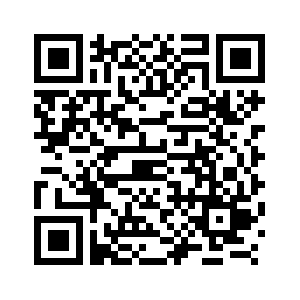BEIJING, Sept. 7 (Xinhua) -- The recently concluded 2023 China International Fair for Trade in Services (CIFTIS) wowed attendees with a range of innovations in Traditional Chinese Medicine (TCM), including robots capable of acupoint-massage treatments akin to human hands, and a 24/7 hotline offering bilingual TCM consultations for English speakers.
Such products are indicative of how TCM, a cherished facet of Chinese culture, is advancing intelligently in the modern world, infusing vigor into the global healthcare landscape with a blend of tradition and innovation.
In recent years, China has increased its policy support for the development of TCM, leading to a period of high-quality growth in the field and accelerated international outreach.
Speaking at the event, which ran from Sept. 2 to 6, Wu Zhendou, head of the international cooperation department of the National Administration of TCM, said that international cooperation in TCM has yielded significant results. He pointed to cooperation agreements signed with 40 foreign governments and regional authorities, introducing TCM to 196 countries and regions worldwide.
"Initiatives to enhance international cooperation on TCM have paved the way for establishing high-caliber overseas TCM centers and cooperation hubs. From 2016 to 2020, the cumulative import and export trade volume of TCM products surpassed 28 billion U.S. dollars," Wu said.
One of the prominent TCM companies expanding internationally is Tongrentang, a venerable TCM pharmacy with a heritage spanning over 350 years.
Leveraging the momentum of the Belt and Road Initiative, this centuries-old pharmacy has been fast-tracking the global dissemination of TCM.
It has successfully established a presence in over 28 countries, encompassing a network of more than 160 outlets. These include retail pharmacies, TCM clinics, wellness centers and cultural hubs, collectively contributing to the global reach of TCM.
One of the most eye-catching innovative products and technologies exhibited at CIFTIS was a robot designed for precise acupoint treatments, showcasing the fusion of traditional Chinese medicine heritage with cutting-edge innovation in the healthcare sector.
Developed by Zhongke Shangyi Technology (Beijing) Co., Ltd., the robot is equipped with advanced features, including mirror image processing technology, dual robotic arms and a three-dimensional graphical visualization system.
According to the introduction provided at the booth, the robot has the capability to efficiently collect real-time meridian data from the human body, transmit it to a data-processing center for analysis, and display continuous tracking on a three-dimensional visualization system.
"The robot has received official regulatory approval and is primarily tailored for treating chronic lower back pain," said Wang Yawen, assistant to the company's general manager.
The robot not only offers holistic treatment but also provides specialized, digitally-driven therapy for specific ailments. Additionally, it ensures precision through digital technology, promoting safety and non-invasiveness, thereby facilitating a comfortable journey to recovery, according to Wang.
At the Belt and Road TCM development forum, a sub-forum of CIFTIS, a noteworthy announcement was made by attending officials and scholars, showing the increasing global acceptance and utilization of TCM as a healthcare option.
The claims are substantiated by data from the World Health Organization, which reveals that 113 WHO member countries officially acknowledge the efficacy of acupuncture.
Furthermore, according to the National Administration of TCM, more than one-third of the world's total population has received some form of TCM treatment. ■



